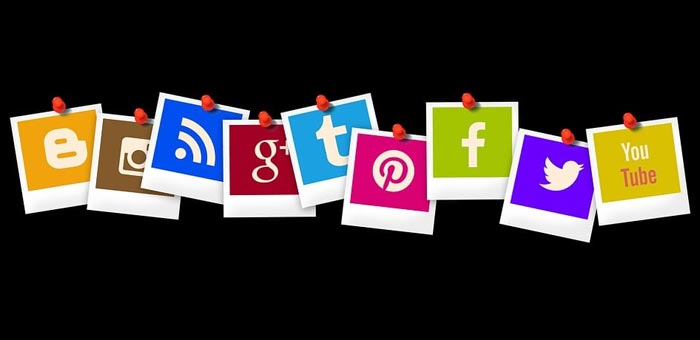Since the beginning of humankind, people have been known as social animals, and neurobiology holds that this trait makes people naturally sociable beings who enjoy interacting with others. It has been proven that having relationships with friends, family, neighbours, and co-workers helps people bond and, as a result, reduces stress, anxiety, and depression.
Numerous scientific studies have shown that those with strong social networks are less prone to psychological problems and the emergence of mental diseases than those with weak social networks.
Humans interact with one another and with others in groups in a variety of ways. People used letters, visits, and eventually telephones to communicate in the past. The globe has become a global village as a result of technological developments in communication methods over time, access to the internet, and social media. Reaching out to anyone, wherever in the world, is now quicker and easier.
People now spend the majority of their time on social networking websites. People were encouraged to stay at home after the COVID-19 infection emerged by their separate governments to stop the spread of the said infection, which caused a surge in the usage of social media. Up to 90% of young individuals now spend time on social media websites, with the bulk of them using WhatsApp, Facebook, Instagram, or Twitter at least once daily, according to recent statistics. Due to social media's increasing importance in everyone's lives, these numbers are rising daily.
Social media provides a lot of fun and entertaining advantages, but it may also harm us.
Social media's beneficial impacts :
• We can promote any social cause and health issues on social media platforms.
• We can talk about fresh issues that concern our society.
• For many people, social networking may be a tremendous source of money.
• Social media has made it possible for news to move around the globe more quickly than before.
• It may be highly beneficial for growing a firm.
• Students can locate mentors and training programmes to pick up new skills and information through social media.
• By connecting during lessons, conferences, etc. through Zoom meetings, Google Classrooms, WebEx, etc., it has given both students and mentors a new lease on life.
• Many influential people freely impart their expertise to others in order to foster growth.
• By maintaining a presence on social media, we can make new acquaintances and connect with those who share our interests.
• We can strengthen the bonds that already exist.
• Social networking may be a fantastic tool for facilitating quicker communication.
• We can maintain contact with our loved ones who live far away.
• Social media may provide the society's poor inhabitants a loud voice.
• It is simpler to spread one's message and argue a point to more people.
• Sharing one's own experiences on social media can help us relate to one another and develop empathy.
• Social media can be used to break up boredom, freshen the mind, and start over so that one can perform better.
• People can chat to others and open up about their mental health problems thanks to it.
• You can discover stuff that appeals to your interests with the help of social media.
Harmful or unhealthy impacts of social media
• Social media is extremely addictive.
• It has been established that people can get dependent on screens and hooked to social media.
• Social media can be detrimental to one's self-image.
• Social networking platforms give users the means to compare themselves to others and win other people's approval for their appearance.
• an erroneous sense of control.
• Social media might give you the impression that you have control over how you feel, behave, etc.
• Social media can really increase your feelings of loneliness.
• You may feel lonely if you spend a lot of time alone in your room. In fact, it makes us different from others. Therefore, this does not serve as a substitute for actual social networking, neighbours, or friends.
• Many times, it causes sadness.There is less happiness in the moment thanks to social media.
Information Epidemics
• Misleading and erroneous news that horrifies society, disseminates a lot of false information, and so has a negative impact exacerbates pandemics and other disasters.
• Cyberbullying on social media is dangerous. Because of the horrifying consequences it has had on teenagers in recent years, cyberbullying is an increasing worry.
• The amount of time that students and teenagers spend on social networking sites causes them to pay less attention to their schoolwork.
• Children are diverted from their genuine goals, such as academics, family, friends, and so forth by playing online and offline games, watching pornography, fantasy/magical networks, etc.
• Depression and anxiety may have their origins in social media.
Social media has an impact on our sleep patterns and is linked to emotions of loneliness, melancholy, and anxiety. Social media use too much can have a negative effect on our ability to focus, pay attention, and remember. Social media is still a useful tool for bringing together people and communities around the world, despite its shortcomings.
Social media has both a good and a bad side, just like everything else. When utilised intelligently and sparingly, we may take advantage of its beneficial effects and undoubtedly have the above-mentioned favourable consequences on society. A habit that has a detrimental impact on one's wellbeing can easily be broken. Our ability to permanently manage our social media addiction depends on our willpower and tenacity.
There is already too much negativity in the modern materialist world, therefore we need to use social media to innovate, improvise, and reflect rather than adding to the issue by posting nasty comments.
By-
Sriparna Mukherjee
Amity University, Kolkata



Comments
Post a Comment